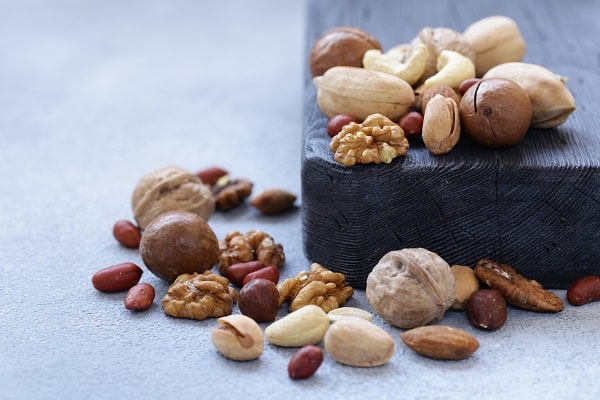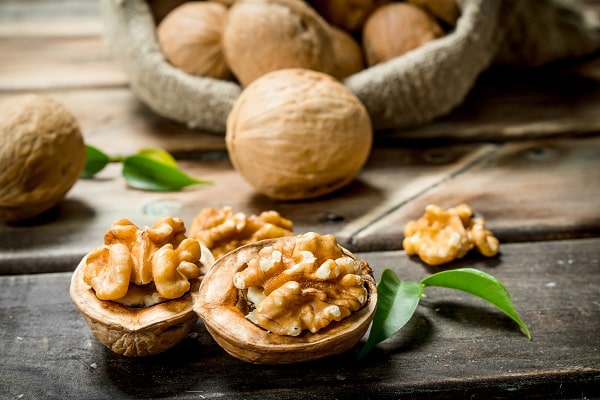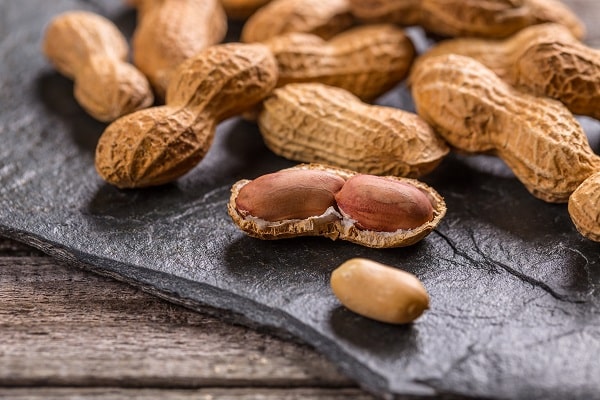This may seem like a silly question, but what is the truth about nuts? People often see nuts as just a healthy snack, but there is so much more to them! This article will discuss the nutritional benefits of nuts, different types of nuts, and how to incorporate them into your diet. It will also dispel some of the myths about nuts that you may have heard. So sit back and enjoy learning everything there is to know about these fantastic little snacks!
Contents
- 1 The History Of Nuts As A Health Food
- 2 The Truth About Nuts And Their Health Benefits
- 3 Nuts Are Excellent Source Of Healthy Fat
- 4 Nuts Contain Essential Fiber
- 5 Nuts Can Help Reduce Inflammation
- 6 The Healthiest Types Of Nuts
- 7 Almonds
- 8 Walnuts
- 9 Peanuts
- 10 Cashews
- 11 Tips For Adding More Nuts To Your Diet
- 12 So What Is The Truth About Nuts?
The History Of Nuts As A Health Food

Few foods are as universally beloved as nuts. They’re a delicious, crunchy snack that can be enjoyed on their own or added to various dishes. And they’re also one of the healthiest foods you can eat. Though we often associate them with the Mediterranean diet, nuts have been a part of the human diet for much longer.
Archaeologists have found evidence that humans ate nuts as far back as 2.6 million years ago. Since then, they’ve been a staple food in many cultures worldwide. In the United States, peanuts became especially popular during the Civil War, when they were in soldiers’ rations. Today, Americans consume more than 700 million pounds of peanuts every year.
The Truth About Nuts And Their Health Benefits

Nuts are an incredibly nutritious food. From a calorie standpoint, they’re one of the densest energy sources. They pack a lot of calories into a small package. One ounce of nuts (about a handful) contains about 160-200 calories. And this is just the tip of the iceberg. Here are some other health benefits of nuts!
Nuts Are Excellent Source Of Healthy Fat
Nuts are a source of healthy fat, essential for your body to function. Fat helps to insulate your organs and keeps you warm. It also helps to absorb vitamins and minerals from the food you eat. However, not all fats are created equal.
Saturated fats, found in animal products, can increase your cholesterol levels and contribute to heart disease. Trans fats, found in processed foods, can also increase your cholesterol levels and cause inflammation. On the other hand, unsaturated fats, which are in nuts, can help to reduce your cholesterol levels and improve your heart health.
Nuts Contain Essential Fiber
Fiber is a vital part of any diet, and nuts are a great source of this essential nutrient. Fiber helps keep the digestive system healthy and regular, and it can also help reduce the risk of heart disease and diabetes. While all nuts contain some fiber, certain types are exceptionally high in this nutrient.
For example, pistachios have 3 grams of fiber per ounce, while cashews have 5 grams. Almonds, meanwhile, have 4 grams of fiber per ounce. So if you’re looking to up your fiber intake, nuts are a delicious and nutritious way to do it.
Nuts Can Help Reduce Inflammation
Many nuts are rich in compounds that have anti-inflammatory effects. For example, pistachios contain lutein and zeaxanthin, antioxidants that help protect cells from damage. Walnuts are a good source of omega-3 fatty acids, which can reduce inflammation. Almonds are also high in antioxidants and magnesium, which can lower levels of inflammation.
Eating a handful of nuts every day can help keep inflammation at bay. In addition to their anti-inflammatory effects, nuts are also a good source of protein and essential vitamins and minerals. So including them in your diet is a great way to promote overall health.
The Healthiest Types Of Nuts
Now that you know some of the general health benefits of nuts, it’s important to look at some of the specific types of nuts that are especially good for you. From a nutritional standpoint, these are the healthiest nuts you can eat.
Almonds

Almonds are a nut packed with nutrients and offer a host of health benefits. They are a good source of protein, fiber, healthy fats, and vitamins and minerals such as vitamin E, magnesium, and potassium. Studies have shown that almonds can help lower cholesterol levels, reduce the risk of heart disease, and promote healthy blood sugar levels. Additionally, almonds are a good source of antioxidants, which can help to protect the body against damage from free radicals.
Walnuts

Walnuts are one of the most popular nuts, and for a good reason. They are packed with nutrients and offer a wide range of health benefits. For starters, walnuts are an excellent source of omega-3 fatty acids. These essential nutrients support heart health, cognitive function, and normal growth and development.
Furthermore, like almonds, walnuts contain high levels of antioxidants, which can help protect cells from damage. Studies have also shown that eating walnuts may help reduce the risk of certain types of cancer.
Peanuts

Peanuts are an excellent source of protein and fiber, essential for maintaining healthy body weight. They are also a good source of monounsaturated fats, which can help to reduce cholesterol levels. Additionally, peanuts contain various vitamins and minerals, including magnesium, phosphorus, and zinc. These nutrients are essential for keeping the body healthy and functioning correctly.
Peanuts are also relatively low in calories, making them an excellent snack for people who are trying to lose weight. Overall, peanuts are a nutritious and versatile food that you can enjoy as part of a healthy diet.
Cashews

Cashews are often lauded as one of the healthiest nuts, and it’s easy to see why. Cashews have many essential nutrients, including magnesium, phosphorus, and iron. They’re also a good source of healthy fats, which can help to improve cholesterol levels and reduce the risk of heart disease.
In addition, cashews are relatively low in calories and fat compared to other types of nuts, making them an ideal snack for weight loss or maintenance. And if that wasn’t enough, they’re also delicious!
Tips For Adding More Nuts To Your Diet

If you’re looking to add more nuts to your diet, keep a few things in mind. First, it’s important to choose various types of nuts to get the most benefit. Each type of nut has its unique nutritional profile, so eating a variety will help ensure that you’re getting all of the essential nutrients your body needs. In addition, it’s important to pay attention to the serving size.
Nuts are a calorie-dense food, so eating too many can lead to weight gain. A good rule of thumb is to stick to a handful (about one ounce) per day. Finally, be sure to choose nuts that are raw or dry roasted. This will help preserve their nutrient content and minimize the risk of damage from heat.
So What Is The Truth About Nuts?
Nuts are a nutritious and versatile food that you can enjoy as part of a healthy diet. They all contain essential nutrients, including protein, fiber, healthy fats, vitamins, and minerals. Additionally, they offer a range of health benefits, such as reducing cholesterol levels and promoting heart health.
If you’re looking to add more nuts to your diet, choose a variety of different types and pay attention to the serving size. Just a handful per day is all you need to enjoy the benefits of these nutritious little powerhouses.


